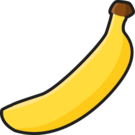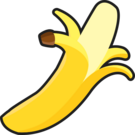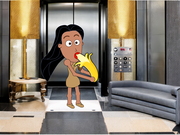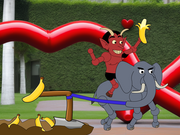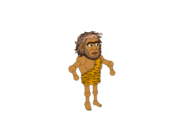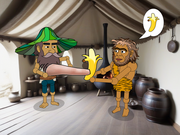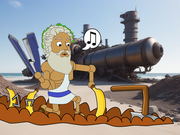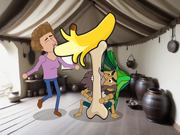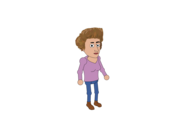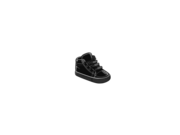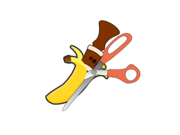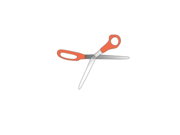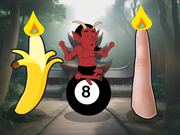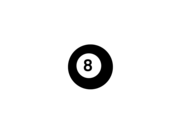丿
丿 character breakdown
The character 丿 cannot be broken down into individual components.
Characters with 丿 as component
person; people / CL:個|个[ge4],位[wei4]
Variant of 冂, but the left stroke is 丿, not 丨
"person" radical in Chinese characters (Kangxi radical 9)
亻
=
丿
+
丨
:
Mnemonic symbol: Rosa Luxemburg. She's quite radical, and her name starts with "r", just like "ren2". Also, 亻appears at the left-hand side of characters, and Rosa is a leftist as well.
Robinson Crusoe (r) and Rosa Luxemburg (亻) are having their favorite snacks in the encampment's kitchen: Rosa is eating a banana (丿) and Robinson is eating a dinosaur bone (丨).
Robinson Crusoe (r) and Rosa Luxemburg (亻) are having their favorite snacks in the encampment's kitchen: Rosa is eating a banana (丿) and Robinson is eating a dinosaur bone (丨).
step with the left foot (Kangxi radical 60) / see also 彳亍[chi4 chu4]
彳
=
丿
+
亻
:
Mnemonic symbol for the step with the left foot: a black sneaker, because black sneakers are popular at least with the leftists I met.
Rosa Luxemburg (亻) just finished her banana (丿) and throws the peel over her shoulder in the space station's bathroom (Ø4). Charlie Chaplin (彳), wearing a black sneaker on his left foot, manages to step on the banana peel with his left foot and fall over even in zero gravity.
Rosa Luxemburg (亻) just finished her banana (丿) and throws the peel over her shoulder in the space station's bathroom (Ø4). Charlie Chaplin (彳), wearing a black sneaker on his left foot, manages to step on the banana peel with his left foot and fall over even in zero gravity.
eight; 8
to regulate / to govern / to control / to mow
Words with 丿
丿
is not used as a component in another word.
Sentences with 丿
丿 currently does not appear in any sentence.
